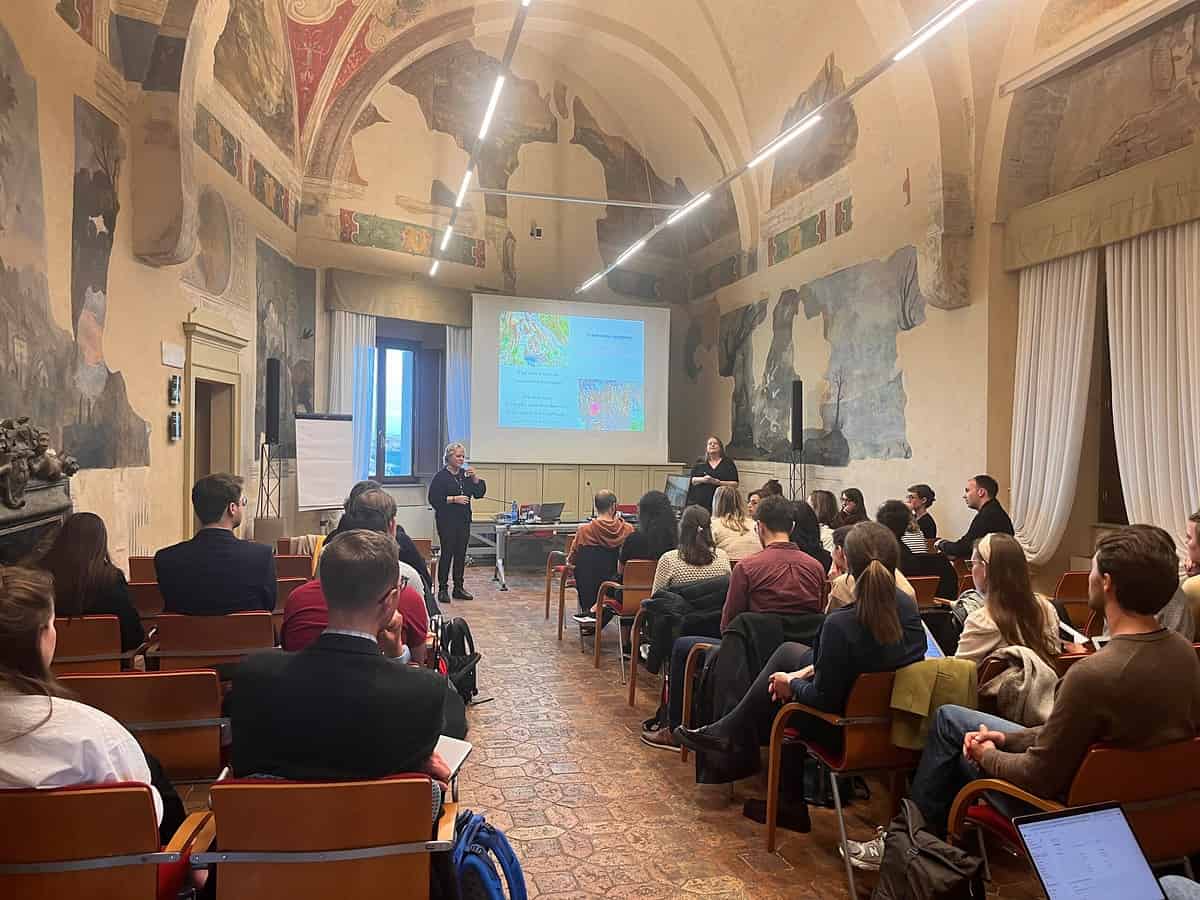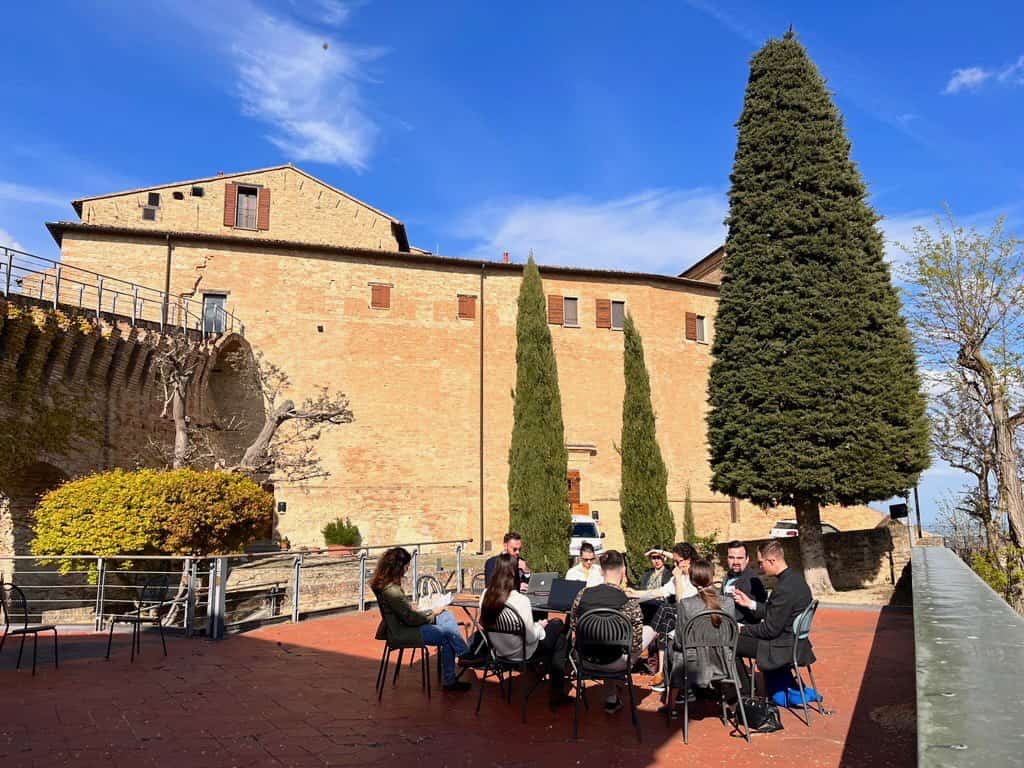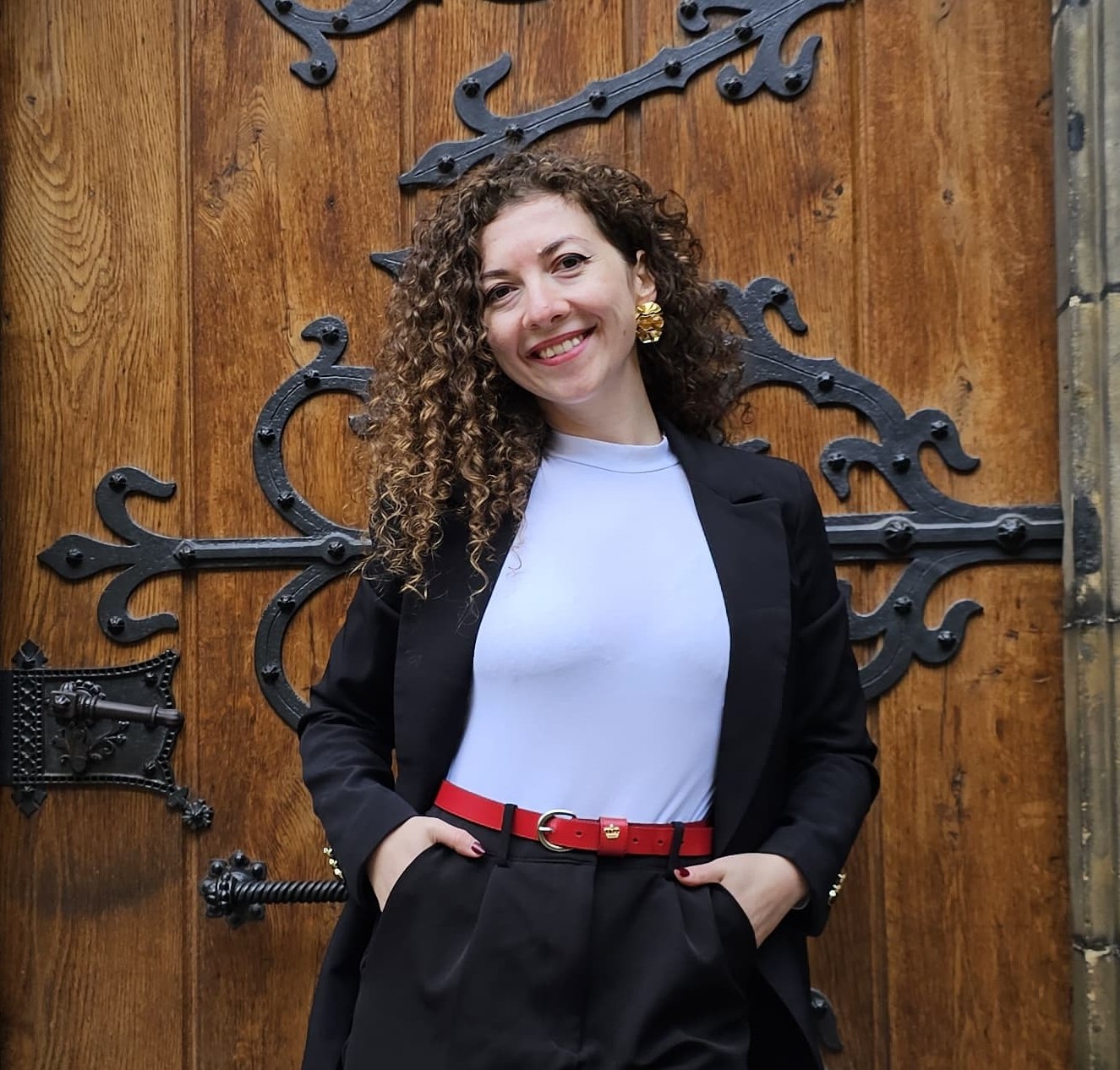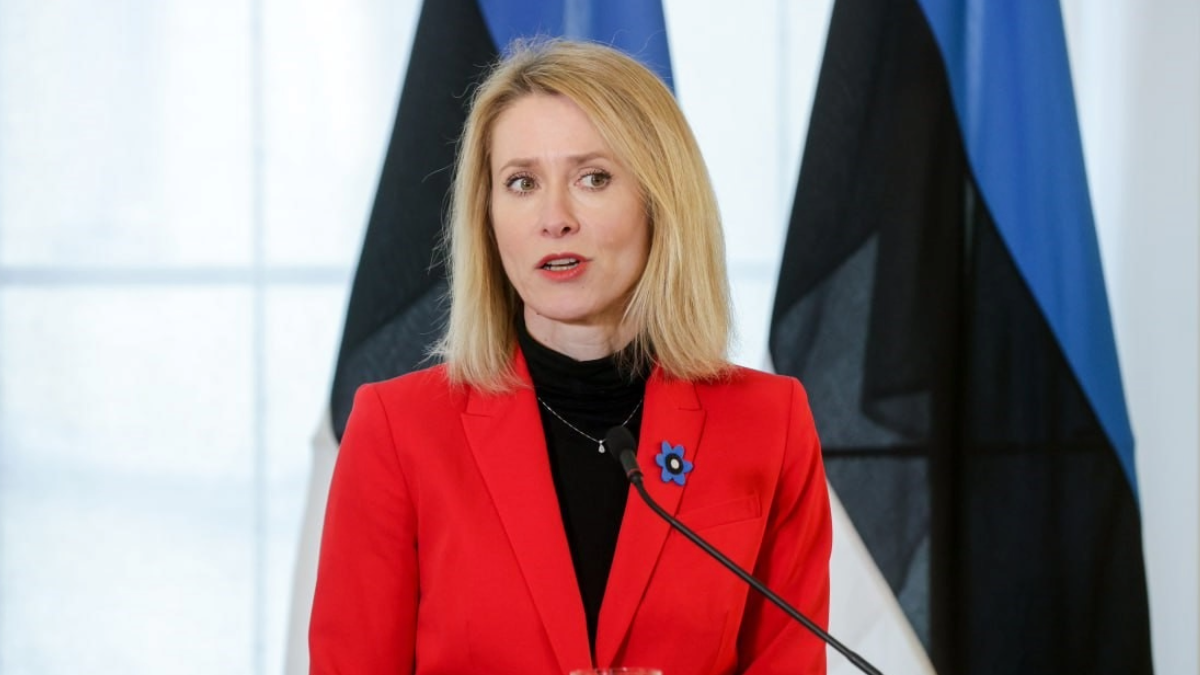Last year, I was selected to join the Europaeum Scholars Programme, a two-year leadership and policy course that connects inter-disciplinary scholars across leading European universities. Every three months, for two years, I meet with other ambitious PhD candidates in a different location. We exchange with renowned scientists, social entrepreneurs, public institutions, private actors, cultural figures, philosophers, and develop policy recommendations to shape the future of Europe. For our fifth module, we met in Italy under the auspices of the University of Bologna, one of the 19 institutions that form our European “university without walls”. The subject of our four-day training was democracy in Europe. In this article, I reflect on the key lessons I learned from this module, namely on negotiation, democratisation, and polarisation.
Negotiation: The art of setting context
We had the fantastic opportunity to participate in a two-hour training in negotiations with a seasoned lobbyist and conflict manager, Wolfgang Sporrer. During his introductory lecture, Wolfgang taught us that bargaining does not have to be about “winning” or finding compromise. In negotiations, parties may also seek to gain time, obtain information, or keep status quo. Nevertheless, there are two main types of negotiation techniques which actors may pursue should they seek compromise.
First, the classical distributive negotiation model proposes that compromise happens in the so-called “zone of possible agreement” or ZOPA. This is where positions from the negotiating parties overlap. In this scenario, one side comes out as winner and the other as loser, as one side makes a smaller compromise than the other. This technique focuses on the present situation. It is considered as the “old school” of negotiations.
Second, the Harvard model proposes that compromise happens by “expanding the cake”, i.e. adding new terms of agreement which were originally not on the table. This expands the ZOPA. For example, if two parties struggle to make a sale (e.g. you are negotiating the price of a new car with a seller), one may propose to add on a new feature to the service or product that was being sold (e.g. the seller proposes to keep the price you try to bring down, but offer free leather seats). This model is better suited for long-term relationships, especially political ones. It represents the “new school” of negotiations.
In sum, if we cannot resolve a problem, we can expand the context to find a suitable agreement. Whilst practicing his lessons in a simulation game (the most fun I had all week), I realised that negotiations are indeed more about setting the context of bargaining than bargaining itself. Delimiting the terms of agreement has more impact than negotiating those terms.
If we cannot resolve a problem, we can expand the context to find a suitable agreement.
This is incredibly helpful to understand broader conflicts and challenges: the frame, the narrative surrounding them is often more important than the solutions proposed to fix them. In the case of “disinformation” and other information disorders, this helps us understand that the epistemology and communication that surrounds them is more important than the policies that are proposed to resolve them. Political actors have framed those challenges in a way that has limited the solutions we design, but we should seek to “expand the cake”.

Democratisation: A new wind of change is coming
Over our time in the magical countryside of Bertinoro, we had the honour of exchanging with several renowned scholars and professionals in democracy, including Helene Sjursen, Kalypso Nicolaïdis, Tanja Börzel, Thomas Risse, and Robert Bjarnason. These speakers helped us reflect on the state of democracy in Europe but also on how the European Union (EU) can promote democracy within and beyond its borders. Whilst each had their own unique way of approaching the subject, one point seemed to re-emerge across discussions: Europe urgently needs to start switching things around.
First, the EU isn’t anymore in a position where it can have a normative and prescriptive attitude towards other countries when it comes to democracy (whether it ever has been is another question). Given the democratic backsliding we observe in many of its member states (e.g. Hungary, Poland, but also Italy and Greece) as well as the double standards often applied to external actors (e.g. the differentiated treatment of Syrian and Palestinian refugees in Germany), it simply would be hypocritical. Instead of adopting the position of teacher, the EU should become a learner. Professor Nicolaïdis mentioned valuable lessons that can be learned from Chile and Hong Kong when it comes to democratic innovation. In other words, democracy isn’t a gold standard upheld by a group of countries but an endless collective odyssey in which we all gain from mutual learning.
Democracy isn’t a gold standard upheld by a group of countries but an endless collective odyssey in which we all gain from mutual learning.
Second, democratising opaque decision-making processes increases support and legitimacy. In ber lecture, Professor Sjursen explained European states thus have all to gain from increasing democratic participation in making of foreign policy, security policy, diplomacy, and other fields typically lacking transparency. These fields are increasingly being contested as the public increasingly gets access to information – on a spectrum of accuracy – about them. Opening public debates not only improves support and legitimacy, but also improves social equality and contributes to collective identity, tells us Professor Sjursen.
Overall, our discussions on democracy highlighted a wind of change when it comes to democracy and democratisation. The EU, humbled by its own failures, should urgently seek new ways of engaging with its people, especially in those fields which have so far remained under the democratic radar. That’s exactly what we seek to achieve with our group project, Level Up, which you’ll soon hear a lot more about.

Polarisation: Simplifying complexity
We had several sessions discussing populism, authoritarianism, and information disorder, with experts such as Gianfranco Baldini, Enrico Padoan, Elena Esposito, and Heather Thompson. What these issues all had in common: they reflect a broader problem of polarisation, especially along political lines. However, this issue is very often misunderstood. It is very common to encounter claims that online platforms cause polarisation or even radicalisation. However, these allegations are misguided.
First, as Professor Nicolaïdis reminded us, ambivalence is present in all of us. Categorising opinions and situations in a binary matter (e.g. left-right, democracy-authoritarian, facts-conspiracy theories) is not accurate nor is it helpful. It’s not accurate because, in reality, those experiences move on a multi-dimensional spectrum. There is no such thing as a “perfect democracy” or a globally accepted definition of populism, only spectrums. In addition, we change our minds and discourses depending on the evidence presented to us. Therefore, we should refrain from labelling individuals and groups, which often have exclusionary effects and deepen societal divisions. Labels and concepts are ways of reducing complexity, so that we can make sense of it, but they do not help us deal with contemporary challenges. For that, we need to embrace complexity.
We should refrain from labelling individuals and groups, which often have exclusionary effects and deepen societal divisions.
Second, targeting the amplifiers of polarisation (populism, online platforms, etc.) does not mean tackling its root causes. It certainly helps alleviating it, but it does not address the underlying structural factors which lead to its existence in the first place. We all know what they are: social inequality and injustice, ineffective means of democratic participation, US-led capitalism, climate change, … There is not one single cause, in fact, but a multiplicity of interdependent causal mechanisms which lead some societies to polarise, or even radicalise. Reality cannot always be explained by simple concepts and it certainly cannot be changed with simple policies. To tackle complex challenges, we must embrace their intricacy and seek to address them in a holistic manner.
Complexity theory, network theory, and global governance (among others) are frameworks which can help us better understand the inter-connectedness of problematic phenomena such as polarisation. We ought to give ourselves the time and chance to fully understand those complex problems as we design effective solutions and policy responses.
Conclusion
This article has reflected on my latest training as part of the Europaeum Scholars Programme. I discussed key lessons about negotiation, democratisation, and polarisation. I emphasise that negotiations are more about setting the context of bargaining than bargaining itself, and that expanding the terms of agreement can often lead to better outcomes. I also argue that the EU needs to become a learner rather than a teacher when it comes to democracy, and that democratising opaque decision-making processes can increase support and legitimacy. Finally, I discuss the complexity of polarisation and argues that it cannot be explained or addressed with simple concepts or policies. I suggest embracing intricacy to better understand and address these complex problems. Overall, my reflections have implications for the future of global society in highlighting the need for more nuanced and collaborative approaches to negotiation, democratisation, and polarisation.
Written by Sophie L. Vériter
Global Society
With the advances of technology, we become more aware of how connected we are, as individuals, states, and continents, but also as a transplanetary community. This impacts how we imagine solutions to political, economical, and social challenges.
As an expert in international security and global affairs, I research how to create systems for a safer future. My articles delve into debates surrounding democracy, technology, and security.
I am currently working on more elaborate pieces that look into global information networks and how we can optimise them for public good.



